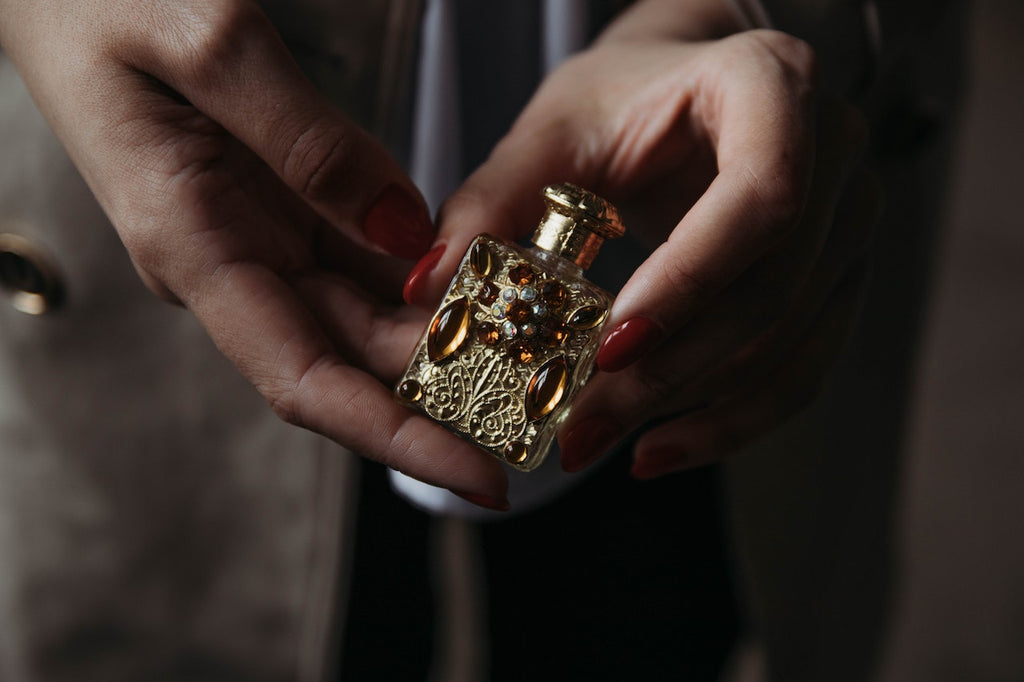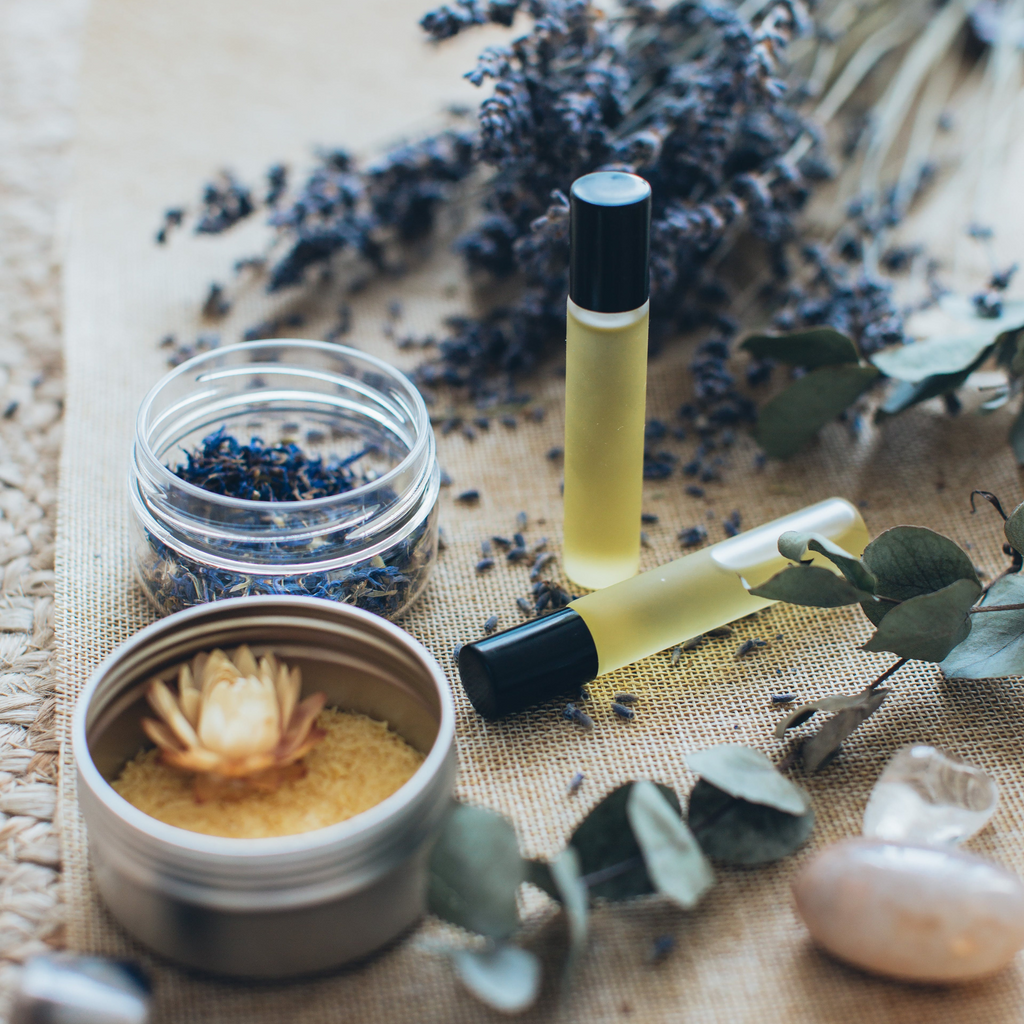Bold and Mysterious: Discovering What Makes Fragrances Masculine
In the vast and intricate world of perfumery, the distinction of what constitutes a 'masculine' fragrance remains as alluring as it is elusive. At Next Fragrance, we delve into this olfactory journey, uncovering the layers that define masculine scents.
A Scented History
The story of masculine fragrances is steeped in history, tracing back to ancient civilizations where scents played a pivotal role in rituals and personal grooming. Over centuries, these fragrances have evolved, mirroring the changing ideals of masculinity. From the heavy musks of the Middle Ages to the fresh, aquatic notes of modern times, each era reflects a unique facet of manliness.
The Building Blocks of Masculinity
At the core of masculine perfumes are potent, robust ingredients that define their character. The strength and stability of woody notes, like cedar and sandalwood, form the foundation of many classic masculine scents. Complementing these are the fiery zest of spices such as pepper and cloves, adding a dynamic and invigorating element. Not to be overlooked are the refreshing and sharp citrus tones, commonly found in aftershaves and colognes, which introduce a lively freshness. This striking blend sets masculine fragrances apart from the floral and sweet notes predominantly associated with feminine perfumes.
Understanding the layered structure of these fragrances is key to appreciating their complexity. Typically, masculine scents unfold in a symphony of aromas: starting with bold top notes that capture immediate attention, transitioning to intricate middle notes that form the heart of the fragrance, and culminating in deep, lingering base notes that provide lasting depth and resonance. This sophisticated structure isn't just about the individual scents—it's about the narrative they weave and the memories they evoke.
A prime example of this intricate craftsmanship is 'Next Burgundy' from Next Fragrance, a bestseller renowned for its distinctive masculine profile. It's a masterful composition of woody, warm spicy, and aromatic accords, rounded out with hints of vanilla and amber. The top notes feature an exotic blend of Agarwood (Oud), Brazilian Rosewood, and Sandalwood, leading to a heart of Cardamom, Vanilla, and Sichuan Pepper. The fragrance settles into a rich base of Vetiver, Tonka Bean, and Amber. This unique amalgamation of notes creates an enchanting aura of masculinity, making 'Next Burgundy' a quintessential choice for those seeking a fragrance that truly embodies the essence of man.

Cultural Ties and Psychological Impact
In the nuanced realm of fragrances, cultural norms significantly shape our perceptions of scent. Masculine fragrances, in many traditions, are imbued with symbolism - representing strength and resilience. These scents aren't just about personal preference; they are cultural markers, reflecting esteemed masculine traits. Traditional aromatic notes like oakmoss and leather in men's perfumes are more than just olfactory choices; they are steeped in historical significance, echoing the virtues of masculinity.
Simultaneously, the fragrance industry is experiencing a significant shift. The rise of gender-neutral scents marks a move away from traditional binary perceptions. Blending what were once distinctly masculine and feminine notes, these scents reflect a modern understanding of gender fluidity. This trend in perfumery is not just an expansion of scent profiles; it mirrors a broader societal change. Today, choosing a fragrance is less about adhering to gender norms and more about individual expression. In this evolving olfactory landscape, personal choice triumphs over conventional expectations, mirroring the broader societal embrace of diverse identities.
Trends Shaping the Future
The landscape of masculine fragrances is undergoing a transformation, fueled by the dynamic interplay of celebrity influence and fashion trends. Today's masculine scents are breaking free from traditional molds, thanks to style icons and designers who are redefining what it means to smell 'masculine'. This shift is broadening the scent spectrum, allowing for more adventurous and diverse olfactory experiences.
As we look ahead, the future of masculine fragrances is set to embrace personalization and diversity. The emerging trend is a move away from one-size-fits-all scents to those that reflect individual personality and style. Advances in technology are paving the way for more customized fragrance experiences, catering to the unique preferences of the modern man. This evolution signifies a deeper societal shift towards celebrating individuality and breaking down gender norms in the realm of scent.

Finding Your Signature Scent
Selecting the right masculine fragrance is a deeply personal journey, one that intertwines with your style and complements your natural essence. At Next Fragrance, we're committed to facilitating this intimate quest. We offer a diverse range of oil-based perfumes, each designed to cater to the unique preferences and personalities of our clientele. Understanding the varied tastes of modern men, we've curated something special – the Ultra Masculine Perfume Bundle.
This exclusive bundle, available at Next Fragrance, is a carefully selected collection of five fragrances that epitomize masculinity. Each scent in this pack has been chosen for its distinctive character and ability to convey a strong sense of masculinity. From the bold and adventurous to the refined and sophisticated, these fragrances are designed to resonate with various aspects of the modern man's persona. Whether you're looking to make a statement at a special event or seeking a signature scent for everyday wear, the Ultra Masculine Perfume Bundle offers a range of choices to explore and embrace your individuality.
Continue reading




